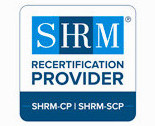Project Management
Northwestern University School of Professional Studies offers a variety of project management courses that meet the professional education needs of today’s project managers. Students will learn from expert practicing project managers the best practices to manage predictive (waterfall), hybrid (Disciplined Agile), or agile projects. Students will be able to grow their skills while earning professional development units (PDUs) for certification or recertification requirements.
Why project management?
Studies show the increasing importance of project management to an organization’s ability to execute its strategy. Project management is not only a career role; it is also a set of skills that make you more effective, no matter your role. According to the Project Management Institute, more than two million project management roles will need to be filled every year to meet the global job demand by 2030, reflecting a surge in career options for those with project management certifications.
Begin RegistrationRequest Information
Choose the track that suits your interests and career goals
We offer two different certificate tracks:

Essentials of Project Management
- Experience level: 0 to 4 years’ professional project management experience
- Core course can be completed in 8 weeks online / asynchronously or 3 days in-person
- Offered:
- In-person at our Chicago campus, on weekdays
- Remotely via Zoom, on weeknights
- Online only, working independently (asynchronous)
- Complete two additional elective courses to earn the certificate
- Elective courses for the certificate may be taken in the same term or spread out over time (electives are offered on a rotating basis and cannot be applied to multiple certificates)

Applied Project Management
- Experience level: 5 years’ professional project management experience
- Completion time: 10 weeks
- Offered:
- Remotely via Zoom, on weeknights
- Online only, working independently (asynchronous)
- Complete this one advanced-level course to earn the certificate
- Ideal for project professionals who already hold certifications and need to earn PDUs to maintain them
- Builds upon foundational project management know-how and dives deep into project leadership, communications, strategy, and complexity
The track you choose will depend on your level of experience, interests, and learning goals. Compare program tracks to learn more.
Compare Program Tracks
Why Northwestern School of Professional Studies?
Our program aims to make you a best-in-class project manager, whether you are managing projects full-time or as a part of your role. You will learn the skills, knowledge, and tools to successfully lead projects, not just tricks to pass an exam.
Expert faculty and access to all that Northwestern University has to offer
Our faculty are experienced project managers and they share their rich experiences and best practices, along with their passion for project management. They actively participate in the courses they teach, providing timely feedback and fostering a positive learning community.
As a student enrolled in a Northwestern University program, you also gain access to a wealth of resources including LinkedIn Learning, the university library system, and free online learning studios.
Meet our Faculty
Earn professional development units for the CAPM® or PMP® certification exams or to maintain your current certification
All of our courses provide professional development units (PDUs) that can be used towards Project Management Institute (PMI) certification or re-certification.
Additionally, our instructors are able to provide guidance to students on how best to prepare on their own for the Certified Associate in Project Management (CAPM)®, Project Management for Professional (PMP)®, or other PMI certification exams.
PMI, PMP, and CAPM are registered trademarks of the Project Management Institute, Inc.
Classes are offered weekdays, weeknights, and online – year-round
Power your career with a certificate that works with your schedule. Our courses are available in different formats and times to give you the flexibility to learn when it is most convenient for you.
- In-person at our Chicago campus, on weekdays
- Remotely via Zoom, on weeknights
- Online only, working independently (asynchronous)
Program is designed with key learning goals in mind
Our program supports you at all stages of your project management skill development.
- Foundational courses to build your core skills
- Intermediate courses to enhance your skills and take you to the next level
- Advanced courses so you can dive deeper into targeted topics
You can take courses that apply to you, tailoring your learning to meet your unique needs.
- Classes that cover the full project management lifecycle
- Classes focused on specific techniques, such as risk management, SCRUM, and AI
- Classes focused on interpersonal and leadership skills
What courses should I take?
Explore all the Project Management Program Courses for details on course offerings. Do you have questions about building your course plan? Speak with one of our enrollment advisors for guidance.
View All Courses
What courses should I take?
|
Are you…
|
Then take… |
|
New to project management and building foundational skills?
|
- PROJ_PMI 401 Essentials of Project Management
|
|
Looking to expand your foundation and take on new challenges?
|
|
|
A seasoned professional wanting to deep dive into current best practices and enhance your leadership skills?
|
|
|
Managing complex projects?
|
|
|
Preparing for a certification and need to fill in knowledge gaps?
|
|
|
Looking to build your skills, maintain your professional certification, and earn Professional Development Units (PDUs)?
|
Any of our courses!
|
SHRM recertification credits
 Northwestern University School of Professional Studies is recognized by SHRM to offer Professional Development Credits (PDCs) for SHRM-CP® or SHRM-SCP® recertification activities. Some courses in this program are valid for PDCs for the SHRM-CP® or SHRM-SCP®. Refer to each course description for requirements and the number of PDCs awarded.
Northwestern University School of Professional Studies is recognized by SHRM to offer Professional Development Credits (PDCs) for SHRM-CP® or SHRM-SCP® recertification activities. Some courses in this program are valid for PDCs for the SHRM-CP® or SHRM-SCP®. Refer to each course description for requirements and the number of PDCs awarded.Find out more about Northwestern's Certificate in Project Management
Contact an Enrollment Adviser
An Enrollment Adviser at Northwestern University School of Professional Studies can help with any inquiries regarding our certificate programs.
About the Project Management Certificate Programs
Project Management Program Courses




 Northwestern University School of Professional Studies is recognized by SHRM to offer Professional Development Credits (PDCs) for SHRM-CP
Northwestern University School of Professional Studies is recognized by SHRM to offer Professional Development Credits (PDCs) for SHRM-CP